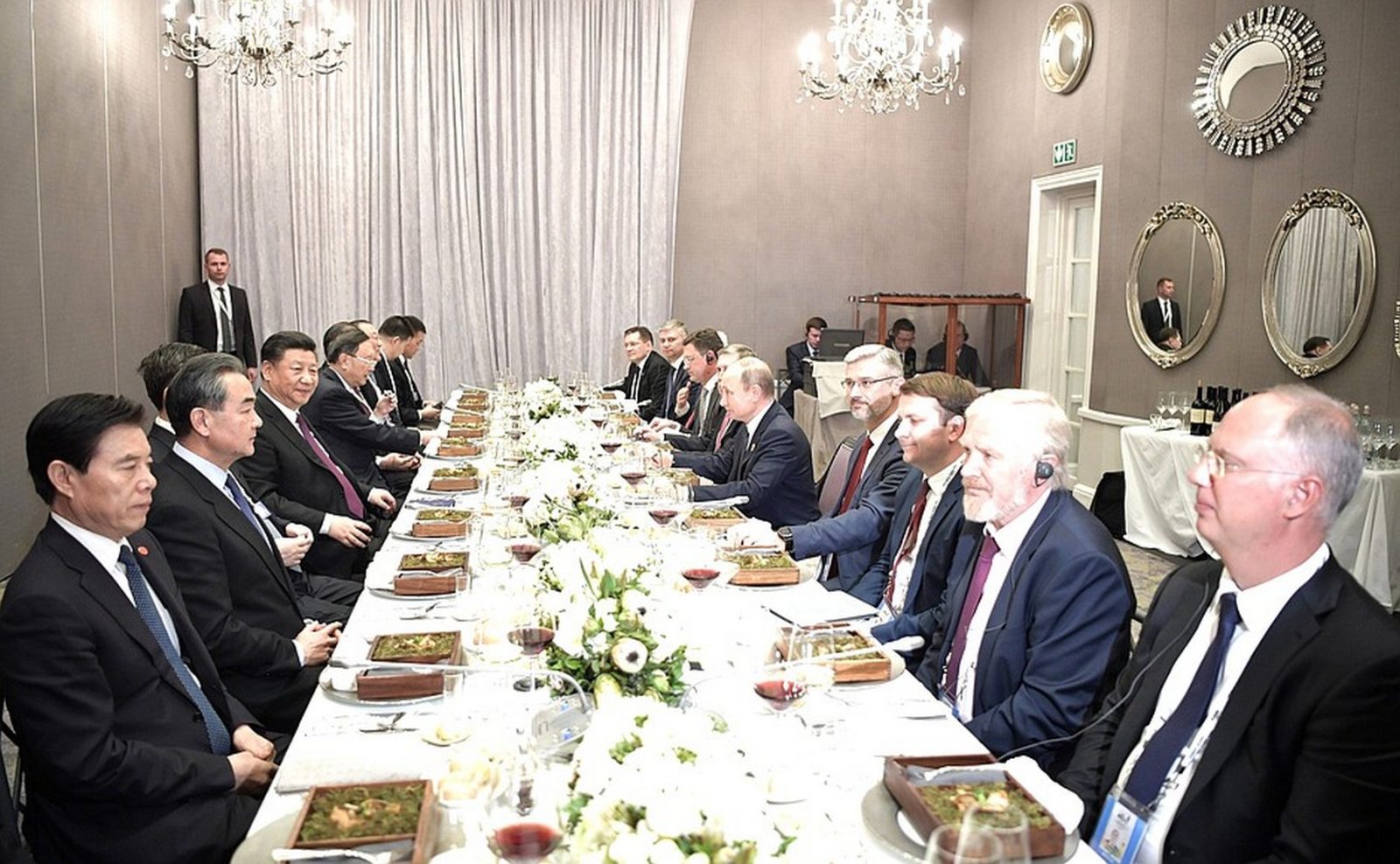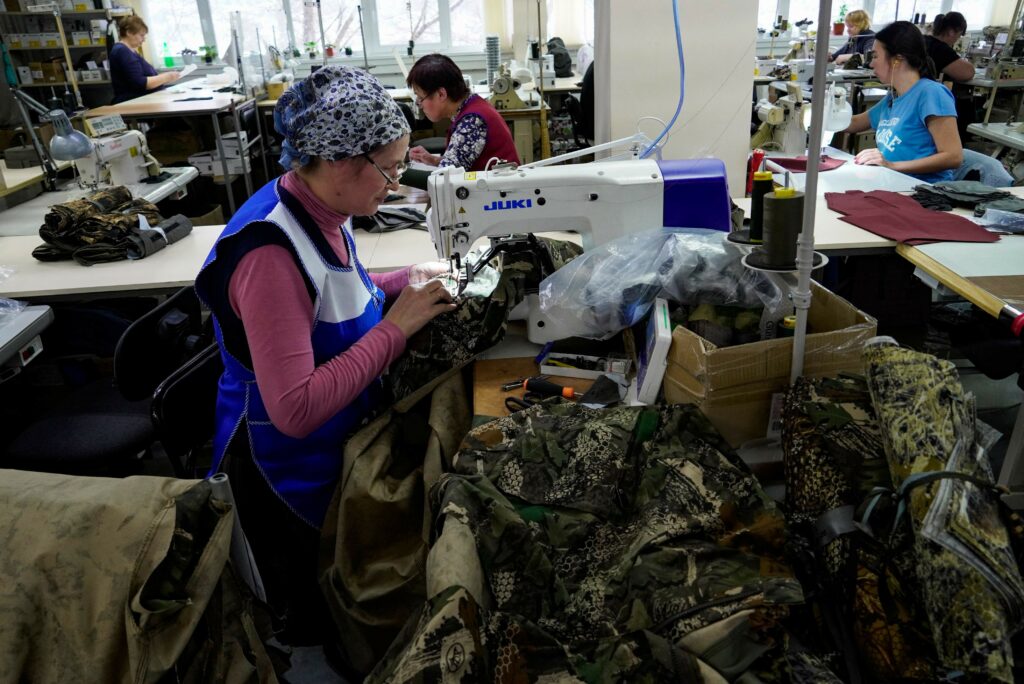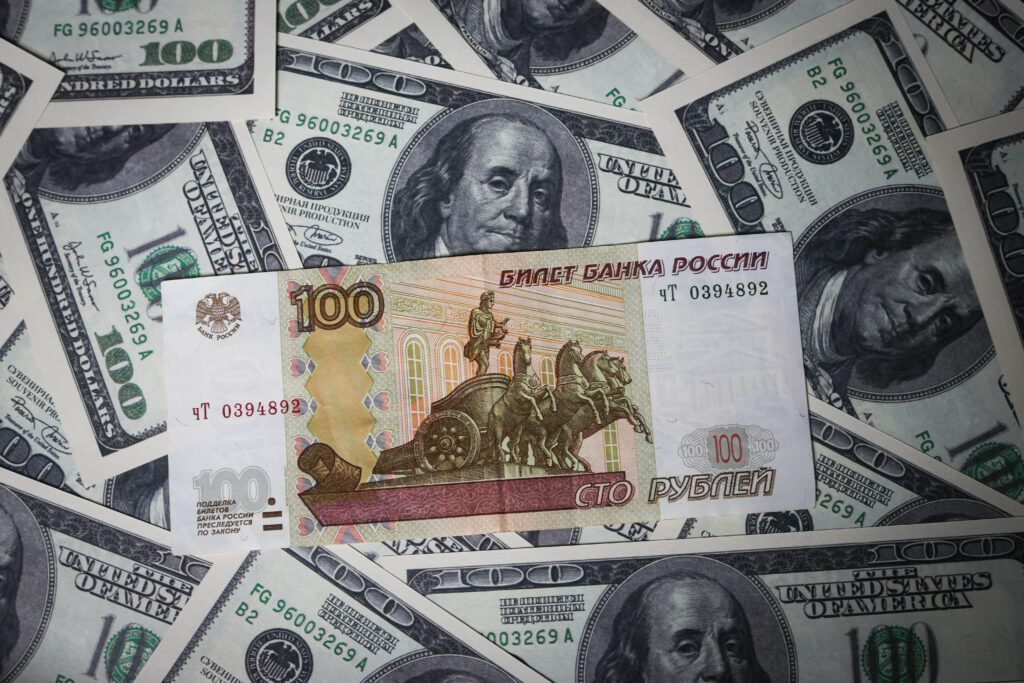Russia and China’s relationship is complicated. Many see it is as an alliance, though Moscow itself prefers to refer to Beijing as a strategic partner. China formally upgraded Russia as a “comprehensive strategic partner” just this January, and 2018 saw their largest joint military drill to date. But the highfalutin language and military displays are far less important than their economic relationship. How far the two states are willing to go in their alliance may well be determined primarily by the supply and demand of Chinese financing for Russian firms.
Russia has a turbulent time with its foreign creditors. The Soviet default of 1918 is by some measurements the largest government default of all time. After the fall of the Soviet Union, Russia’s 1998 default wrought havoc on both the domestic economy as well as its foreign lenders. Even so, by the mid-2000’s Western lenders had again become infatuated with Russian debt. The “Londongrad” era — the years leading up to Western sanctions over the Kremlin’s annexation of Crimea in 2014 — is most famous for its IPOs of Russian firms on the London Stock Exchange. Yet those years also saw a simultaneous growth of Russian firms borrowing in the market, including state giants Rosneft and Gazprom. Russian external debt has since declined notably, as sanctions have constrained the market.
That has caused Russia to turn more to China for loans, at least on state-backed projects. Nonetheless, strains remain in Russian-Chinese business relations. Negotiations over the Power of Siberia pipeline, completed after the onset of the West’s sanctions regime, still chafe many in the Kremlin. Rather than show Russia’s strength in using natural gas pipelines as a geopolitical tool, the pipeline showed power had shifted east of Siberia, to Beijing. China was able to extract significant pricing concessions.
Already by 2014 Russia was the largest recipient of Chinese development assistance, attracting $36.6 billion in related financing. Before that, Beijing had a lengthy track record of involvement in controversial politically-motivated loans in Russia. Most notably the country provided $6 billion in loans to help with Rosneft’s takeover of Yukos in 2005. China Development Bank also played the role of lender of last resort to Rosneft and Transneft, lending them with $25 billion at the height of the global financial crisis four years later as well.
Beijing has eager to finance projects that serve its market, such as offering $12 billion in financing for the Yamal LNG project, in which it is also invested as an equity partner. Despite this financing boom, many in Russia’s private market still see Chinese loans with trepidation. State-coordinated loans such as those for Rosneft or the Yamal-LNG project rely on explicit political backing.
Rusal became the first Russian firm to issue a yuan-denominated bond in the Chinese market, an instrument known as a “panda bond,” in March 2017. The bond was only for 1 billion yuan, roughly $ 145m, and thus did not represent a major shift away from Western creditors. Rusal had often tapped them and its parent company — EN+ — launched a London IPO later that November. Just five months later, the firms would fall under US government sanctions because they were controlled by blacklisted Russian oligarch Oleg Deripaska.
Although Rusal was removed from the sanctions list in a controversial deal between its British chairman, Lord Barker of Battle, and the US Treasury, in January 2019, Western creditors will likely continue to tread cautiously around the firm. Since the sanctioning, Rusal turned to domestic financing but in June it announced it was again seeking to issue panda bonds. Further chatter about other such issuances reportedly took place at the 2019 St. Petersburg International Economic Forum. Though it remains to be seen how many other Russian firms will follow suit.
The Kremlin itself has been hesitant to issue Panda bonds, although Russia’s Ministry of Finance first proposed doing so in November 2015. Russia’s State-run Vnesheconombank (VEB) said last February that it was considering such bonds, but a year later said it had found them to be too expensive. The need for sovereign and quasi-sovereign Panda bonds has been mitigated by Russia having little trouble syndicating such bonds in the West over the last year or so.
Although non-residents dumped Russian Eurobond and domestic bond (OFZ) holdings in the aftermath of Crimea’s annexation, they have since returned to the market, issuing a particularly large amount of such debt since 2018. The market no longer considers the political risks of such bond sales so grave, and Russia sold its largest Euro-denominated sovereign bond issuance yet just days after seizing three Ukrainian navy boats and their soldiers in disputed waters near Crimea. Russian officials have even talked up such debt issuance as part of their effort to mitigate against the risk of further US sanctions.
But there is more to the story. Konstantin Vyskhovksy, head of state debt at Russia’s Ministry of Finance, dismissed plans for sovereign Russian panda bonds in a March 2019 Reuters interview. He called Chinese law a “black box,” noting that related financing cannot not be withdrawn from China. His comments were about as critical as a technocrat’s can get: “We do not consider it worthwhile,” he went on, “to create a benchmark for our companies in this instrument.” Reading between the lines, it seems the Kremlin does not want Russian firms to become dependent on Chinese financing.
In other words, Moscow is happy to turn to Beijing for financing in times of need, or to secure politically expedient projects. But even as proposals to ban Russian sovereign debt circulate in Washington, Moscow fears becoming dependent on Chinese financing. Such a ban would likely precipitate Russian sovereign panda bonds, which could further heighten the partnership between Moscow and China. But the imbalance of power, in particular financial firepower, is too great for this to become an interdependent alliance.










